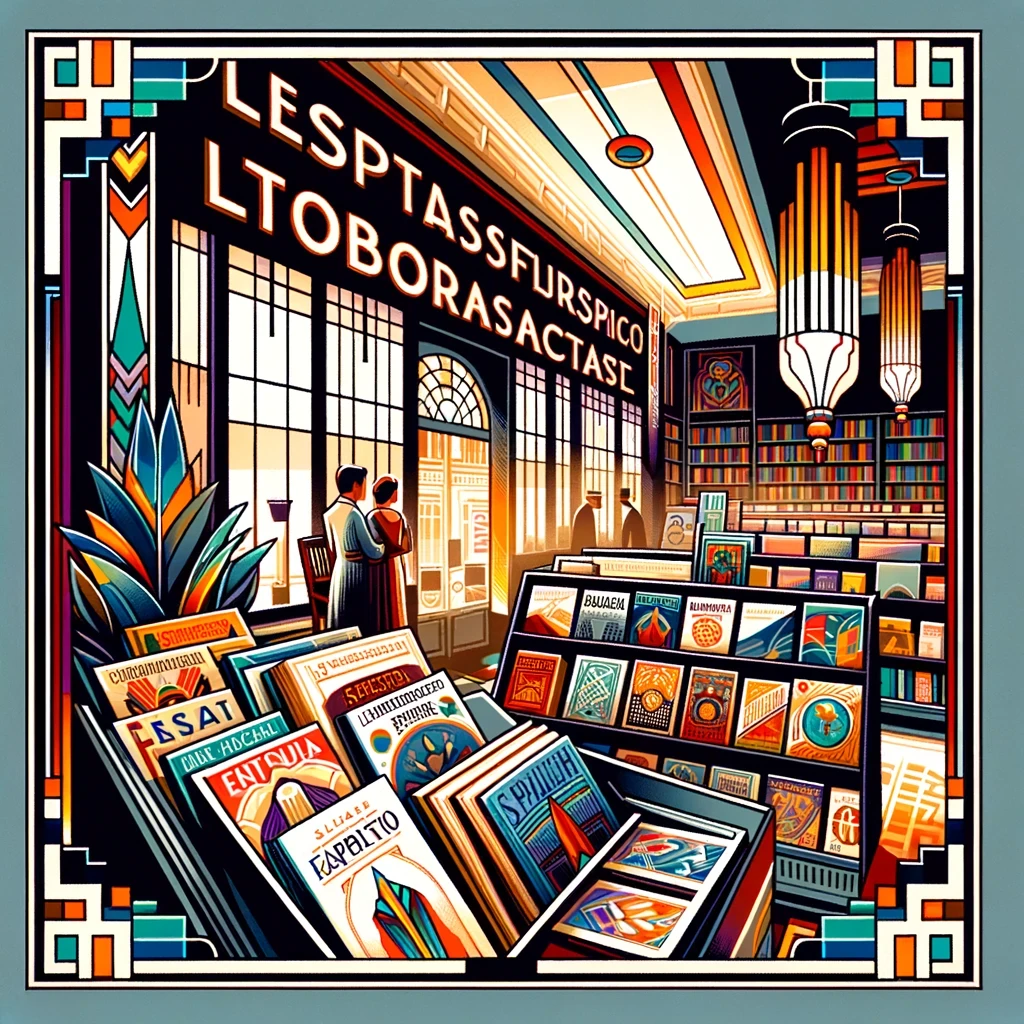Spanish Library & the Pandemic podcast
Lali Beria is a Spanish Library. In this podcast 2 entrepreneurs in Southern California, talk about how they decided to create a library for Spanish-speaking children and teenagers, and their actions to overcome the challenges set forth by the pandemic.
Questions
Before you come to class, answer the questions below.
Be ready to discuss the answers in class. We will also use online tools to see how your written English can be improved. Bring your computers.
Vocabulary
1. Market Place: Refers to the commercial environment or space in which businesses operate. In this context, it could also refer to the name of the show hosted by Kay Ruysdall.
2. Economy: Refers to the system of production, consumption, and distribution of goods and services in a particular geographic area or country.
3. Technology: In the context of retail, it refers to the digital tools and platforms used to enhance business operations, like e-commerce platforms.
4. Bookstore/Library: Retail outlets where books are sold. The term ‘library’ is sometimes colloquially used to refer to bookstores, although traditionally it means a place where books are available for borrowing.
5. Target Audience: Refers to the specific group of consumers a business aims to reach, in this case, children, schools, and young adults.
6. Cultural Hub: A center or focal point that promotes cultural activities, in this case, focused on Spanish culture and bilingual families.
7. Trade Fairs: Events where businesses in a specific industry showcase and demonstrate their new products and services. Here, it’s related to the book industry.
8. Evaluation Process: The method used by the bookstore owners to assess and select books to include in their inventory.
9. Publishing Houses/Book Editors: Companies or individuals responsible for the production and dissemination of literature or information – in this case, books.
10. E-commerce: The buying and selling of goods or services using the Internet.
11. Online Sales: The act of selling products or services over the internet.
12. In-person Experience: Direct, face-to-face interaction, important in retail for providing a personalized shopping experience.
13. Book Fairs: Events where books are displayed and sold, often featuring discussions and readings.
14. Lock-down: Refers to a period of enforced isolation or reduced social interaction, commonly used in the context of the COVID-19 pandemic.
15. Co-Founder: An individual who establishes a business or organization jointly with one or more other people. In this context, Helena Navarete co-founded the bookstore.
16. Merchandise: In a retail context, this refers to the goods or items that are available for sale in a store. Here, it specifically refers to books.
17. Inventory: The total quantity of goods and materials held in stock by a business, such as a bookstore.
18. Customer Preferences: Refers to the likes, dislikes, motivations, and inclinations of consumers, which influence their buying behavior. The bookstore owners consider these when helping customers select books.
19. Personalized Service: Tailoring service to meet each customer’s individual needs and preferences. This is a key aspect of the bookstore’s customer engagement strategy.
20. Cultural Link: The connection or association with a specific culture, in this case, the Spanish culture, that the bookstore aims to establish.
